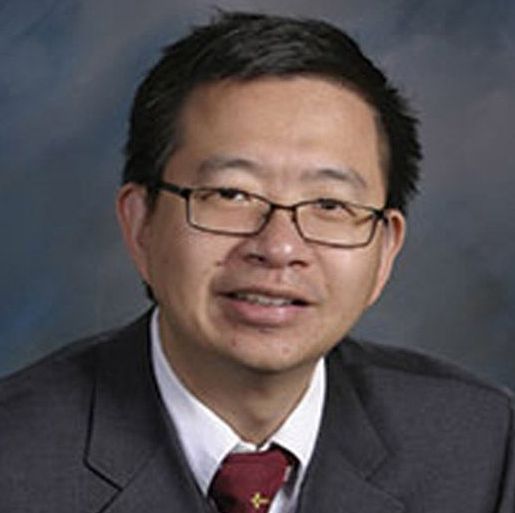Interview with Dr. Nilesh Dave
In this illuminating interview, Dr. Nilesh Dave touches on many interesting aspects of his career journey, including why it might be best to secure an MBA after you gain some know-how.
Current Role
Nilesh is working as Medical Director at a large health insurer, where he oversees innovation, strategy, health care quality and population health of the plan’s 350,000 members.
A graduate of the Medical College of Pennsylvania – Hahnemann School of Medicine, he completed an internal medicine residency and fellowship in Pulmonary, Sleep, and Critical Care Medicine, at the University of Pittsburgh Medical Center.
He obtained his Master of Public Health at Johns Hopkins University, Bloomberg School of Public Health, and Master of Business Administration at the Northwestern University, Kellogg School of Management.
He started his clinical career as a pulmonologist, putting his expertise in sleep medicine to work.
Our Sponsor
We're proud to have the University of Tennessee Physician Executive MBA Program, offered by the Haslam College of Business, as the sponsor of this podcast.
The UT PEMBA is the longest-running, and most highly respected physician-only MBA in the country, with over 650 graduates. Unlike other programs, which typically run 1 – 1/2 to 2 years, this program only takes a year to complete. And Economist Magazine recently ranked the business school #1 in the world for the Most Relevant Executive MBA.
University of Tennessee PEMBA students bring exceptional value to their organizations. While in the program, you'll participate in a company project, thereby contributing to your organization.
Graduates have taken leadership positions at major healthcare organizations. And they've become entrepreneurs and business owners.
By joining the University of Tennessee physician executive MBA, you will develop the business and management skills you need to advance your career. To find out more, contact Dr. Kate Atchley’s office by calling (865) 974-6526 or go to vitalpe.net/physicianmba.

Helping to Create a New Service
Nilesh was recruited right out of fellowship to a program that needed a new sleep center. So while building a practice, he was also building a new service line. It was a success, but Nilesh found that he had difficulty when trying to reconcile the business interests of his employer with the clinical realities inherent in a sleep center.
So, he ultimately left that position after the sleep center was established, and entered a more traditional private practice. But he continued to take on new projects that were not strictly clinical in nature. As he did so, his interest in pursuing nonclinical leadership opportunities grew.
Decision to Secure an MBA
Nilesh began his nonclinical career journey the same way many do. He read books, joined Facebook groups, and reached out to former colleagues that had left clinical practice for guidance.
He recalled his experience opening the sleep center, in which he had difficulty communicating with administrators. So, Nilesh decided to obtain an MBA as a way to master a new set of communication and business skills. He looked over the options for such a degree, from the traditional MBA to physician executive MBA.
He chose to go with an executive MBA, which could be obtained while still working full time. But he chose one that was NOT focused solely on healthcare, because he wanted to learn with emerging leaders from different business backgrounds.
An MBA Is Not Always the Solution
John and Nilesh agreed that some physicians see an MBA as the way to find direction in their pursuit of a nonclinical career. Nilesh cautions against this approach. While hugely beneficial, he sees his MBA more as a useful tool that allowed him to build on his existing leadership experience. Pursuing an MBA is generally best if you already have a clear vision of your career goals.
I do not think an MBA should be the way to figure out where you want to go. You have to know where you want to go and see the MBA as an additional tool that would help you in getting into that goal.
NILESH DAVE
Interviewing for Nonclinical Jobs
Six months into his MBA, Nilesh began applying to positions, aware that the process might be a slow one. However, it seemed that the employers were reluctant to commit until after he had completed his MBA.
Even with the MBA under his belt, some employers did not understand how his experience in clinical practice would translate into their world. “They don’t quite understand how someone who sees patients… can assimilate into a nonclinical setting.”
However, he learned to better frame how clinical leadership applied to nonclinical work with each interview. This led to his current medical director position with a very large health insurer.
Enjoying the New Role
Since pivoting to this new career, Nilesh has been very satisfied. He does not miss the demands of clinical practice, and he enjoys the challenges of the new job. He also sees numerous opportunities to advance and apply the management and leadership skills he has developed over the past twelve years.
Summary
Nilesh's experiences mirror those of other physicians who have navigated the shift from clinical to nonclinical careers. By taking advantage of opportunities to take on leadership and management roles in the clinical space, he prepared himself to make the transition to the nonclinical domain.
And, by acquiring an MBA, he added additional tools, and an understanding of business language, so that he could communicate with his nonclinical colleagues. This allowed him to bridge the gap between healthcare and the the business world, and enter a new universe of opportunities.
Links for today's episode:
- Dr. Nilesh Dave on LinkedIn
- Northwestern University Kellogg School of Business
- Medical College of Pennsylvania/Drexel University
- University of Pittsburgh Medical Center
- Johns Hopkins University Bloomberg School of Public Health
Thanks to our sponsor…
Thanks to the UT Physician Executive MBA program for sponsoring the show. It’s an outstanding, highly rated, MBA program designed for working physicians. It might be just what you need to prepare for that joyful, well-paying career. You can find out more at vitalpe.net/physicianmba.
I hope to see you next time on the PNC Podcast.
If you enjoyed today’s episode, share it on Twitter and Facebook, and leave a review on iTunes.
Podcast Editing & Production Services are provided by Oscar Hamilton.
Disclaimers:
The opinions expressed here are mine and my guest’s. While the information provided on the podcast is true and accurate to the best of my knowledge, there is no express or implied guarantee that using the methods discussed here will lead to success in your career, life or business.
Many of the links that I refer you to, and that you’ll find in the show notes, are affiliate links. That means that I receive a payment from the seller if you purchase the affiliate item using my link. Doing so has no effect on the price you are charged. And I only promote products and services that I believe are of high quality and will be useful to you, that I have personally used or am very familiar with.
The information presented on this blog and related podcast is for entertainment and/or informational purposes only. It should not be construed as medical, legal, tax, or emotional advice. If you take action on the information provided on the blog or podcast, it is at your own risk. Always consult an attorney, accountant, career counsellor, or other professional before making any major decisions about your career.
Right click here and “Save As” to download this podcast episode to your computer.
Here are the easiest ways to listen:







Leave A Comment
You must be logged in to post a comment.